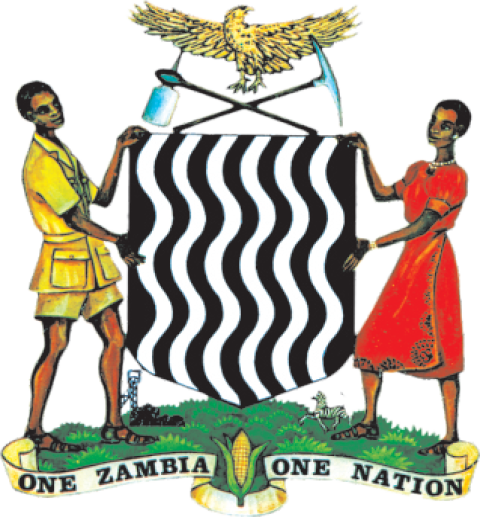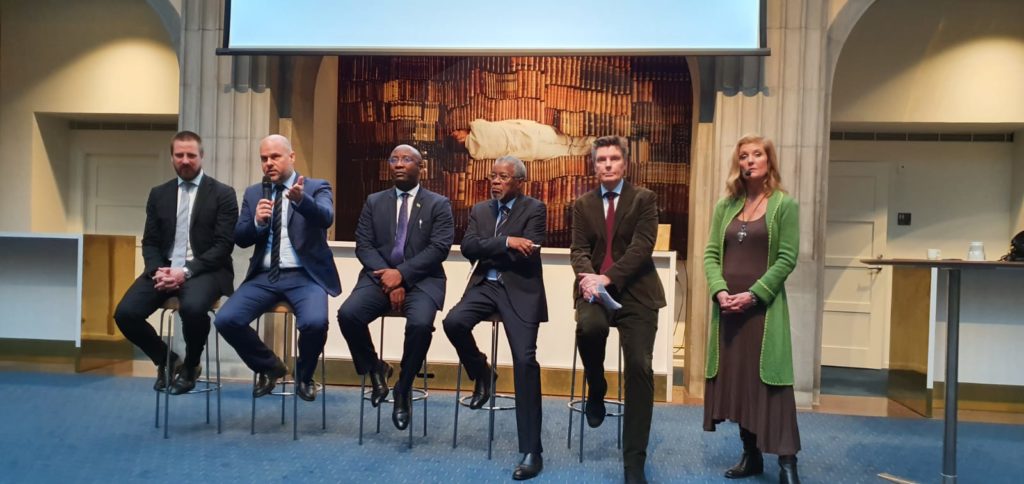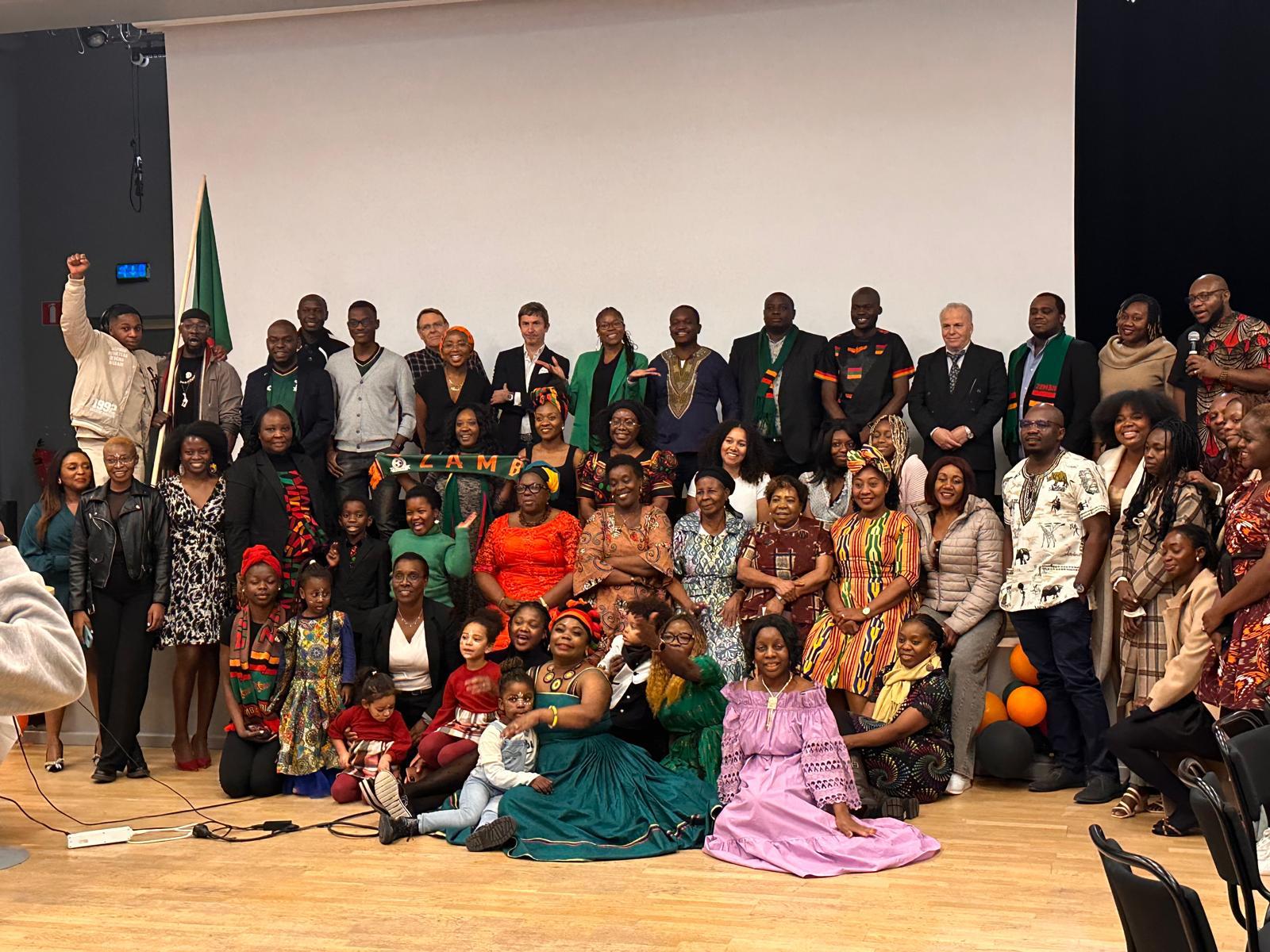STOCKHOLM – TUESDAY, 21ST January, 2020 – THE Embassy of Zambia in Stockholm has invited the business community in Sweden to take advantage of the numerous investment opportunities that have remained unexploited in Zambia.
Speaking to about 40 senior executives from top-ranking Swedish companies at the weekend, Charge D’ Affaires at the Zambian Embassy in Stockholm, Mr. Nicky Shabolyo, invited the entrepreneurs to exploit the potential in the Zambian energy, manufacturing, infrastructure, agriculture and tourism sectors.
Mr. Shabolyo was speaking on the theme: Green Cities and Sustainable Solutions at a seminar organised by the Sweden – Sub-Saharan Africa Chambers of Commerce (SSACC) in conjunction with the Swedish Ministry of Foreign Affairs.
The seminar is part of preparations for a business mission to Zambia in April this year which will be led by SSACC.
Mr. Shabolyo said Zambia recognised that the companies represented at the event were among those which have helped Sweden become one of the dominant economies in the world and that Zambia was looking forward to collaboration with them to help bring about sustainable development.
“You’re the drivers of the Swedish economy. You’re the ones that have helped make the economy of this country what it is today. And we feel privileged this morning as this gives us an opportunity to position ourselves and hopefully get you to do to Zambia what you have done and continue to do to Sweden,” Mr. Shabolyo said.
Among the companies represented wereABB Power Grids, Advanced Aerobic Technology AB, Appy Lda, Azelio, Bombardier, Confidere Sverige AB, Conscious Invest, Hexicon, Hunterhex, Kommerskollegium, Lars Thunell, LFV Aviation Consulting AB, LGSM, ND Power, and Nordomatic. Others were Pontarius AB, SAAB Group, Scania CV AB, Sebastian Hellman EV, Siemens Turbo Machinery, Sitlab AB, Sweco, The First Advisory, UD, Unipower, Voith Hydro AB, Wayout International AB, and Wedholms AB.
Mr. Shabolyo pointed out that demand for renewable energy in Zambia has seen significant growth in the recent years as the market explores alternative sources in order to reduce reliance on hydro power which has been the major source.
He said Zambia’s major source of electricity has been hydro and that demand has been growing at an average of about three per cent per annum mainly due to the increased economic activity in the country especially in the agriculture, manufacturing and mining sectors. He observed that the situation has been compounded by recent dry spells which have made it impossible for the country to generate electricity at full capacity.
“So given this background, increasing investment in capacity for energy production, will be a sure sustainable solution to our energy challenges. Adequate electricity throughout the year will also help us attain sustainable development as it will have far reaching positive effects on the performance of the other sectors.
He told the audience that last November, the Zambian Cabinet, approved the Revised National Energy Policy in order to guide the development and management of the energy sector.
“Among other objectives, this is meant to encourage the growth of solar, wind, waste-to-energy, geo-thermal, and other forms of alternative energy. And this effort is in the light of challenges experienced in times of droughts compounded by the increased demand for energy in the country.”
Mr. Shabolyo pointed out that there was huge potential in solar projects in Zambia which had over 3,000 sunshine hours annually, geo-thermal plants, biofuel energy projects, and hydro-power in the northern parts of the country.
He further pointed out that a number of municipalities in Zambia were grappling with waste management which Sweden had effectively managed by utilising it in generation of energy and manufacture of various recycled products.
“We can obviously benefit by collaborating with Swedish companies which are renowned in this technology. We invite you to work with us so that we can explore possibilities of setting up mini-power plants using waste to generate energy,” Mr. Shabolyo said.
He noted that Swedish companies that recently embarked on a US$1 billion lithium-ion battery manufacturing project, could consider setting up a base in Zambia where cobalt, a major component in battery manufacturing, was in abundance.
Lithium batteries are projected to be in high demand in the near future considering the growing interest to shift to electric vehicles by most countries.
Mr. Shabolyo told the audience that apart from energy, the Zambian government has identified infrastructure, manufacturing, tourism and agriculture as the sectors that had the greatest potential to help Zambia attain sustainable levels of development.
He urged the business community to explore the five sectors further in order for them to know how they could best help create a win-win situation for themselves and Zambia.
The Embassy and SSACC are working on another seminar which will involve a more streamlined group of companies that will eventually travel to Zambia in April.
And Deputy Head of the Africa Department in the Swedish Ministry of Foreign Affairs, Mr Fredrik Folkunger, who was impressed with the large turn-out of participants, encouraged the Swedish companies to take advantage of the opportunities that were available in Zambia.
Mr. Folkunger noted that the need for investment and sustainable solutions in Zambia was substantial at the moment especially that Swedish companies were skilled in sustainable solutions which were critical to Zambia.
And SSACC president, Åsa Jarskog urged the business community to make use of her organisation whenever they were planning to invest in Zambia as it had established an effective network which would help quicken the process of setting up investment in Zambia.
EMBASSY OF THE REPUBLIC OF ZAMBIA
STOCKHOLM, SWEDEN
Cell: +46 8 679 90 40




